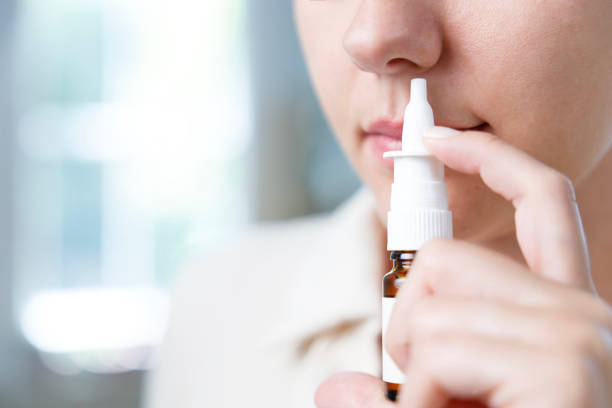USP Inhaler Device Reliability Testing
Ensuring the reliability of inhalation and nasal devices is critical to the pharmaceutical industry. The United States Pharmacopeia (USP) provides standards that ensure the quality, safety, and efficacy of drugs and their delivery systems. USP Inhaler Device Reliability Testing ensures that these devices meet stringent requirements for performance under various environmental conditions.
The reliability testing process involves simulating real-world conditions to assess how inhalers perform over time. This includes evaluating the device’s ability to dispense medication accurately, ensuring it operates safely and effectively within the required specifications. Proper testing is essential not only for compliance with USP standards but also for safeguarding patient health.
Inhaler devices are subject to significant mechanical stress during use, which can affect their performance over time. Our laboratory uses advanced equipment to replicate these stresses in controlled environments. This includes high-velocity air flow testing to simulate the rapid inhalation process and temperature cycling to assess durability under extreme conditions. By conducting these tests, we ensure that inhaler devices meet not only USP standards but also other relevant international guidelines.
Our team of experts works closely with clients to understand their specific needs and tailor our services accordingly. We offer comprehensive testing packages designed to meet the diverse requirements of different inhalation products, from metered-dose inhalers (MDIs) to dry powder inhalers (DPIs). Our state-of-the-art facilities are equipped with precision instruments that can measure particle size distribution, dose uniformity, and other critical parameters.
For nasal sprays and inhalers, we also conduct stability studies to evaluate the long-term performance of these devices. These tests assess how well the device maintains its integrity over extended periods, ensuring consistent delivery of medication even after prolonged use. Stability testing is crucial for maintaining patient safety and confidence in product efficacy.
We employ rigorous quality control measures throughout the testing process to ensure accurate and reliable results. Our laboratories adhere strictly to USP and other relevant standards, which guarantee that our findings are both reproducible and valid. This commitment to accuracy ensures that clients can trust the outcomes of their inhaler device reliability tests.
- High-velocity air flow testing for MDIs
- Temperature cycling for DPIs
- Particle size distribution analysis
- Dose uniformity assessment
- Stability studies over extended periods
Why It Matters
The reliability of inhalation and nasal devices is paramount in ensuring patient safety and effective treatment. Inhalers are designed to deliver precise doses of medication directly into the lungs or nasal passages, making them crucial for managing respiratory conditions such as asthma and chronic obstructive pulmonary disease (COPD).
Reliability testing ensures that these devices perform consistently across various environmental conditions, from hot and humid climates to cold and dry environments. This consistency is essential for maintaining accurate medication delivery, which can significantly impact a patient's health outcomes.
Poorly performing inhalers may result in insufficient drug dosages reaching the intended site of action, leading to ineffective treatment or even exacerbation of symptoms. Conversely, over-delivery of medication could lead to adverse effects and unnecessary side effects. By conducting thorough reliability testing, we help pharmaceutical companies ensure that their products meet strict quality standards, thereby protecting public health.
Moreover, reliable inhaler devices contribute to improved patient compliance with treatment regimens. When patients can trust that their inhalers will function correctly every time they use them, they are more likely to adhere to prescribed dosing schedules. This enhanced compliance can lead to better overall management of respiratory conditions and potentially improve long-term health outcomes.
Scope and Methodology
The scope of USP Inhaler Device Reliability Testing encompasses a wide range of tests designed to evaluate the performance, safety, and efficacy of inhalation devices. These tests are conducted in accordance with the relevant sections of the US Pharmacopeia and other applicable international standards.
Our testing methodology includes several key components:
- High-Velocity Air Flow Testing: This test evaluates the performance of metered-dose inhalers (MDIs) under conditions that simulate rapid inhalation. The goal is to ensure that the device delivers the correct dose at the appropriate rate.
- Temperature Cycling: Dry powder inhalers (DPIs) are tested for their ability to function properly after exposure to a wide range of temperatures, from freezing to scorching hot environments. This ensures that these devices remain effective in various climatic conditions.
- Particle Size Distribution Analysis: We analyze the size distribution of particles within inhalers to ensure they fall within acceptable limits for efficient and safe delivery.
- Dose Uniformity Assessment: This test checks that each spray or puff delivers an accurate dose, minimizing variability between individual units.
- Stability Studies: Over time, inhalers undergo stability studies to monitor their performance under prolonged use. This helps identify any potential degradation in device function over extended periods.





